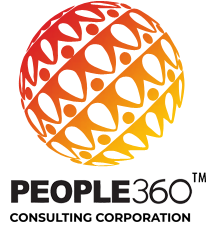By S. S. Suarez
In the early stages of this blog, I wrote about the 10 characteristics of a safety officer. It elicited different responses from the readers. Many tend to proffer the idea that the intangible traits are more important than skills. On the other hand, others think that technical skills are more essential since safety requires application of science and engineering.
I beg to disagree. As safety officers, we must be able to strike a balance between the two. It’s not one way or the other. The soft skills should be in combo with technical skills and experience. I know it is easier said than done. Perhaps it will take years for a safety officer to be able to do such balancing act. But with hard work, patience and diligence, you can achieve this goal.
Here are the 10 competencies which I think that the safety officer must include in his arsenal if he wants to succeed in his chosen field. These are not necessarily in the order of importance. Readers are free to add to this list:
Ability to inspect - To inspect, he must be able to perfect using his five senses. These are sense of sight, sense of smell, sense of taste, sense of hearing and sense of touch. Needless to say, the safety officer must be courageous enough to conquer his fears. Inspection will require him to climb heights, wear chemical suits, among others, thus physical fitness is a job requirement. Inspection is about finding hazards. Inspection rather than investigation should consume much of his time. It is both proactive and preventive which allows management to anticipate potential causes for accidents.
Ability to communicate - Communicating is considered to be the waterloo of safety engineers. The fear of public speaking is common to many and the safety officer is not exempted from it. A safety officer must have proficient communication skills. Why? He presides over meetings, facilitates seminars and organizes emergency response teams. In fact, the safety officer spends most of his time communicating. He writes lots of reports, memos, work instructions, policies and procedures. He conducts safety orientation, toolbox meeting, inspection, audit, drills and educating workers. All these require proficiency in writing and speaking. I developed my writing skills by reading and practicing a lot. I conquered my fear of public speaking by practicing in front of the mirror. Preparation is key to conquer your fear of public speaking. I prepare for my lectures by being diligent, anticipating possible questions to be thrown at me. When I give lectures, I follow the 50/50 rule -- 50% lecture, 50% workshop. Most importantly, I try to be myself. I try not to be someone else in front of my participants. Communicating becomes easy if you practice what you say.
Ability to audit - Not anyone can audit. An auditor follows strict guidelines. To be an auditor, it takes a lot of patience and practice. You must pass an auditor’s course. In fact, there is the ISO 19011:2011 which “provides guidance on auditing management systems, including the principles of auditing, managing an audit program and conducting management system audits, as well as guidance on the evaluation of competence of individuals involved in the audit process, including the person managing the audit program, auditors and audit.” You are to secure the accreditation and you must log in ex-number of auditing hours to maintain the license. To audit, you must have a positive outlook. Audit is intended to check the adequacy and effectiveness of the management system. It’s not a tool to find blame. The auditors’ approach to audit should be process-based. Hence, he must be diligent to study and analyze the internal processes of an organization. A high level of comprehension on how organization works including its cultural idiosyncrasies should equip the auditor. With profound understanding of the ins and outs of the organization, he provides credibility to the audit protocol.
Ability to organize - The safety officer must have the ability to organize for success. Anyone can be an organizer but it takes special talents and skills to succeed and attain the team’s goals. He will not be only asked to organize emergency response teams, risk assessment teams or health and safety committees but he should also ensure that these teams deliver the desired results. Managing multiple tasks within demanding deadlines would be a common scenario to a safety officer. He should be apt to the tasks. Do not crack under pressure. There will be times when your safety ideas will be shot down and face resistance. You must know how and when to regroup and reorganize your strategies to ensure the success of your agenda.
Ability to plan - "By failing to prepare, you are preparing to fail,” Benjamin Franklin, one of theFounding Fathers of the United States of America, once said. The ability to plan, organize, and prepare is essential for safety officers at any level of experience. To ensure its success, there must be commitment to the planning process. Admittedly, planning is hard work. That is why some managers tend to forego this task. It takes time, patience and diligence to complete the planning process. The ISO international standards require a planning process. It is the first step of the Deming Cycle. So what are the secrets of effective planning? First, you must acquire quality data and information. Remember garbage in, garbage out. Put time to research and factual analysis to come up with more accurate plans. Most importantly, involve the people in the planning process. In this manner, you minimize resistance to your safety ideas.
(To be continued)

